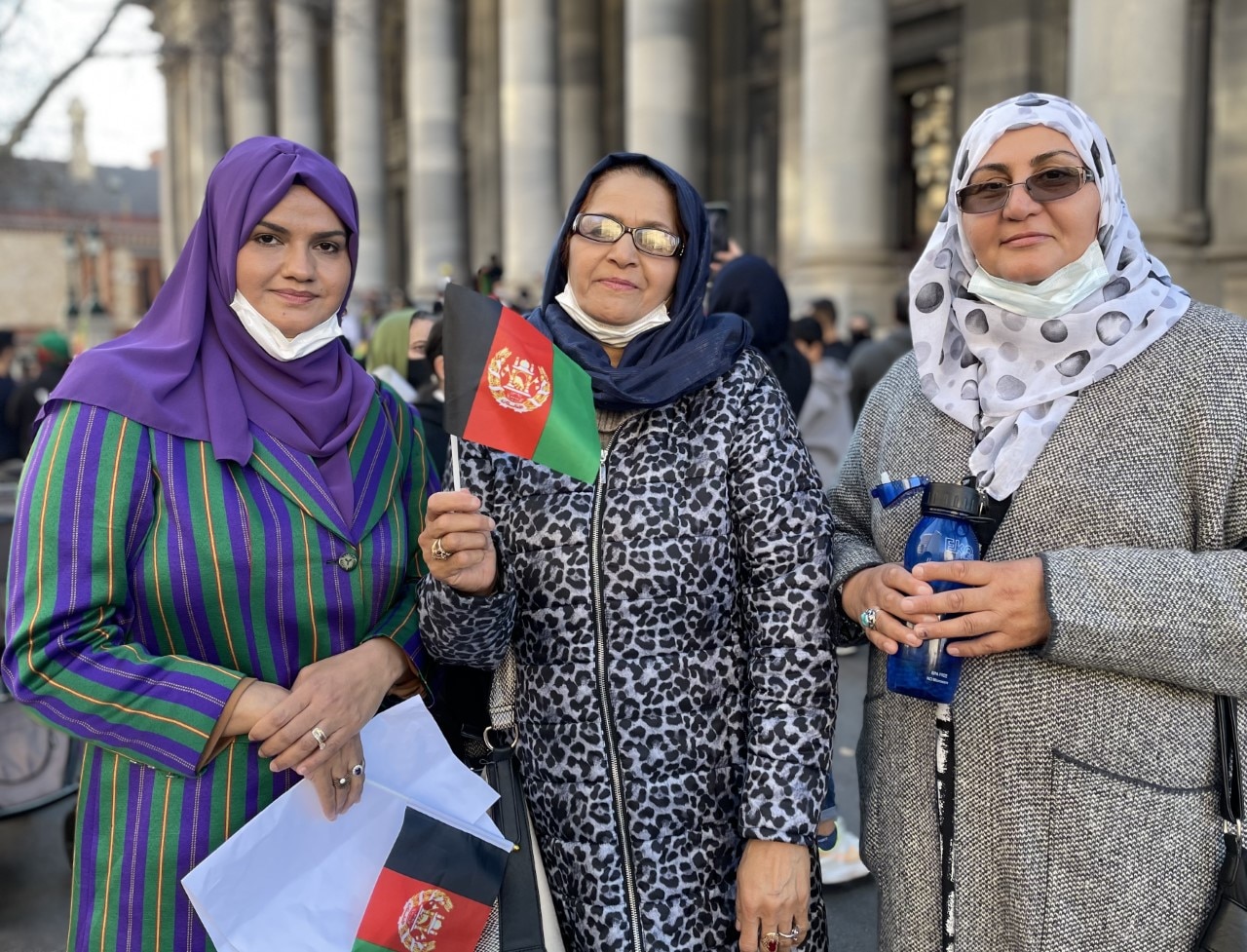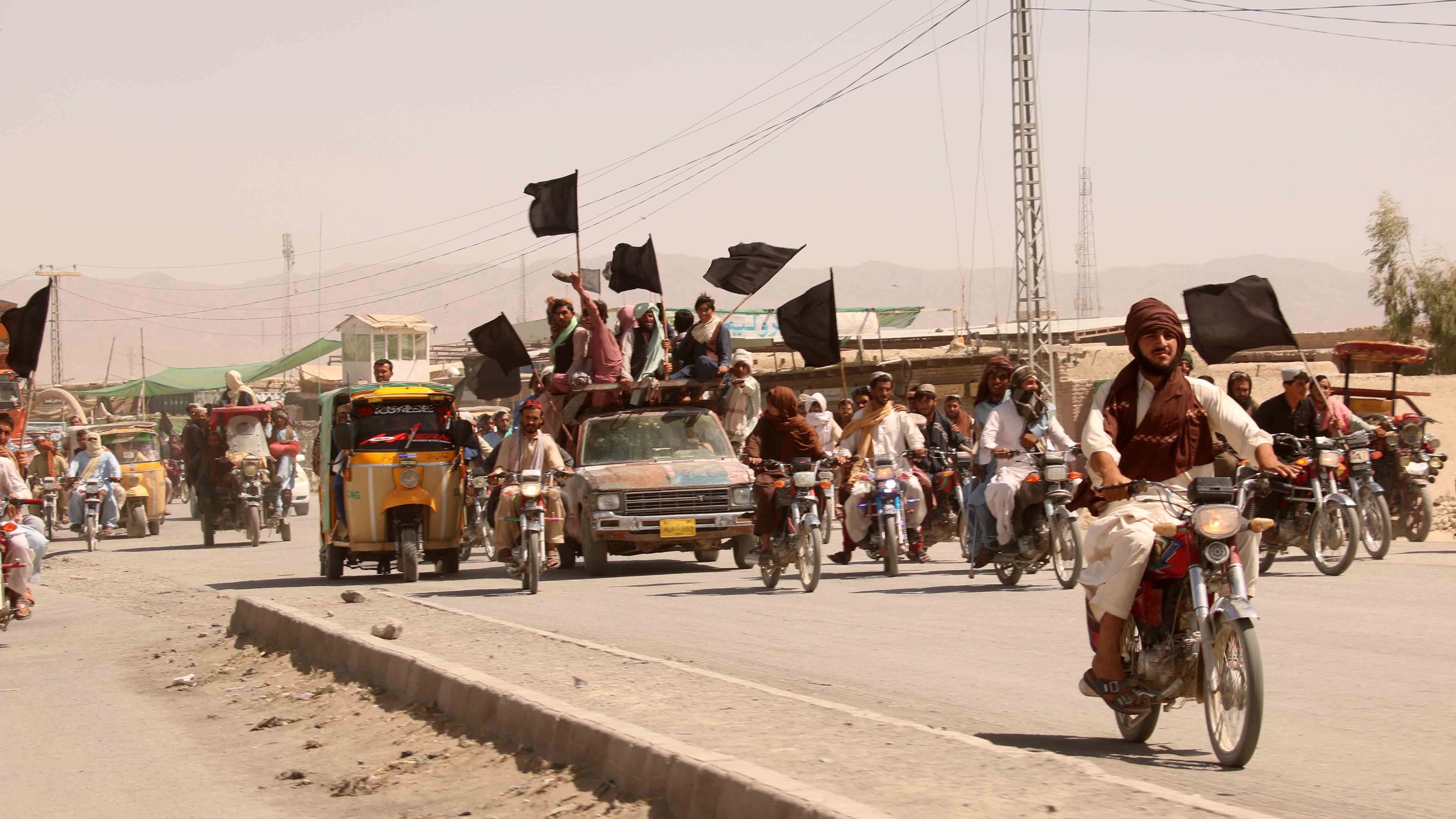Taliban closes further in on Kabul as US ramps up emergency Afghanistan evacuations
This article contains references to suicide.
The Taliban tightened their territorial stranglehold around Kabul on Saturday, as refugees from the insurgents' relentless offensive flooded the capital and US Marines returned to oversee emergency evacuations from Afghanistan.
With the country's second and third-largest cities having fallen into Taliban hands, Kabul has effectively become the besieged, last stand for government forces who have offered little or no resistance elsewhere.
Insurgent fighters are now camped just 50 kilometres away, leaving the United States and other countries scrambling to airlift their nationals out of Kabul ahead of a feared all-out assault.
Heaving fighting was also reported around Mazar-i-Sharif, an isolated holdout in the north where warlord and former vice president Abdul Rashid Dostum had gathered his virulently anti-Taliban militia.
The only other cities of any significance not to be taken yet were Jalalabad, Gardez and Khost - Pashtun-dominated and unlikely to offer much resistance now.
In Kabul, US embassy staff were ordered to begin shredding and burning sensitive material, as the first American troops from a planned 3,000-strong re-deployment started arriving to secure the airport and oversee evacuations.
A host of European countries - including Britain, Germany, Denmark and Spain - all announced the withdrawal of personnel from their respective embassies on Friday.

Afghan woman Yalba Siddiqui (left) marched in Adelaide on Saturday
SBS News/Peta Doherty
On Saturday in Adelaide, hundreds of members of South Australia’s Afghan community rallied to condemn the Taliban and call for international action to halt the insurgents.
“What is happening [in Afghanistan] is horrible at the moment,†marcher Yalba Siddiqui told SBS News.
Ms Siddiqui’s husband is still in Kabul and waiting for an Australian visa.
“Day and night I worry about his safety,†she said.
“I would like the Australian government to do something and hear our voice.â€
'Crying day and night'For Kabul residents and the tens of thousands who have sought refuge there in recent weeks, the overwhelming mood was one of confusion and fear.
Muzhda, 35, a single woman who arrived in the capital with her two sisters after fleeing nearby Parwan, said she was terrified for the future.
"I am crying day and night," she told the AFP news agency.
"I have turned down marriage proposals in the past ... If the Taliban come and force me to marry, I will commit suicide."
UN Secretary-General Antonio Guterres said he was "deeply disturbed" by accounts of poor treatment of women in areas seized by the Taliban, who imposed an ultra-austere brand of Islam on Afghanistan during their 1996-2001 rule.
"It is particularly horrifying and heartbreaking to see reports of the hard-won rights of Afghan girls and women being ripped away," Mr Guterres said.
The scale and speed of the Taliban advance have shocked Afghans and the US-led alliance that poured billions into the country after toppling the Taliban in the wake of the September 11 attacks nearly 20 years ago.
Days before a final US withdrawal ordered by President Joe Biden, individual Afghan soldiers, units and even whole divisions have surrendered - handing the insurgents even more vehicles and military hardware to fuel their lightning advance.
'No imminent threat'Despite the frantic evacuation efforts, the Biden administration continues to insist that a complete Taliban takeover is not inevitable.
"Kabul is not right now in an imminent threat environment," Pentagon spokesman John Kirby said Friday, while acknowledging that Taliban fighters were "trying to isolate" the city.
The Taliban offensive has accelerated in recent days, with the capture of Herat in the north and, just hours later, the seizure of Kandahar - the group's spiritual heartland in the south.

The Taliban on Friday took control of Kandahar, Afghanistan’s second-biggest city.
AAP Image/EPA/AKHTER GULFAM
Kandahar resident Abdul Nafi told AFP the city was calm after government forces abandoned it for the sanctuary of military facilities outside, where they were negotiating terms of surrender.
"I came out this morning, I saw Taliban white flags in most squares of the city," he said.
Pro-Taliban social media accounts have boasted of the vast spoils of war captured by the insurgents - posting photos of armoured vehicles, heavy weapons, and even a drone seized from abandoned military bases.
With Peta Doherty.
Readers seeking crisis support can contact Lifeline on 13 11 14, the Suicide Call Back Service on 1300 659 467 and Kids Helpline on 1800 55 1800 (for young people aged up to 25). More information and support with mental health is available at Beyond Blue.org.au and on 1300 22 4636.
Embrace Multicultural Mental Health supports people from culturally and linguistically diverse backgrounds.

0 Response to "Taliban closes further in on Kabul as US ramps up emergency Afghanistan evacuations"
Post a Comment